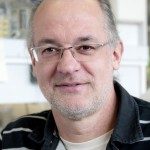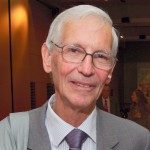About
Infectious agents can manipulate the genetic program of host cells to gain selective advantage. One major objective is to block the innate immune response of the host organism. However, this is not exclusive. Infectious agents also divert or modify the metabolism of the host cell, manipulating its membranes, intracellular trafficking, and its state of differentiation etc. In some cases, infection can also establish a latent state that leads to long-term persistence. Over the last few years it has become apparent that infections hijack and modify cellular signalling pathways to escape PAMPs recognition, to activate or repress transcription programs, to modify cell cycle progression and the DNA damage response etc.
Furthermore, recent discoveries show that infectious agents can also directly modify the epigenetic landscape of the host cell by activating or inhibiting histone modifications, by histone exchange or histone mimicry, or by modulating chromatin binding proteins etc.
By bringing together scientists with expertise in bacteria, viruses and parasites, (communities that seldom interact), we aim to clarify common and distinct pathways employed during infections by different classes of infectious microbial agents. We hope that the cross-talk between different research communities will generate new ideas and contribute to the development of new therapeutic approaches.
The conference will start on June 13rd at 2 pm followed by a reception. It will terminate on Friday June 17th at 6 pm.
Click here for more informations and registration.
Scientific Committee
Carmen BUCHRIESER, Institut Pasteur, France
Pascale COSSART, Institut Pasteur, France
Philippe SANSONETTI, Institut Pasteur, France
Artur SCHERF, Institut Pasteur, France
Alexander TARAKHOVSKY, Rockefeller University, United States
Moshe YANIV, Institut Pasteur, France
Jonathan B. WEITZMAN, University Paris-Diderot, France
Matthew D. WEITZMAN, University of Pennsylvania, United States




